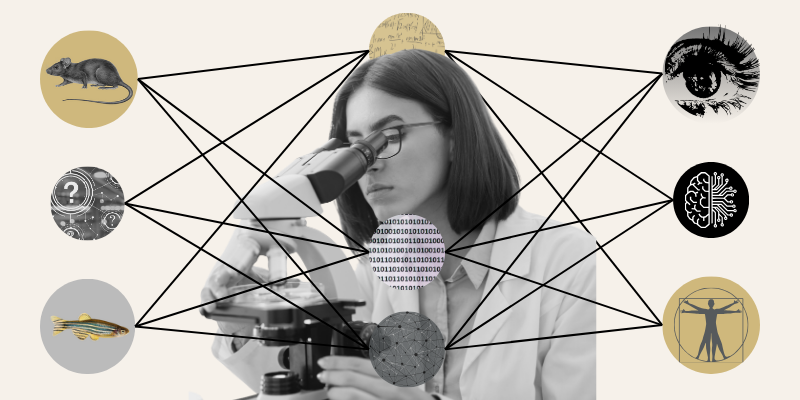Biomedical informatics researchers at the University of Colorado School of Medicine have received a five-year grant totaling $9.5 million from the Office of the Director of the National Institutes of Health (NIH) to advance the Common Fund Data Ecosystem (CFDE), which was created to revolutionize data sharing, integration, and innovation across research communities.
Department of Biomedical Informatics (DBMI) chair Casey Greene, PhD, professor Sean Davis, MD, PhD, and assistant professor Katrina Claw, PhD, will collaborate with faculty from the University of Alabama at Birmingham (UAB) and the University of California, Los Angeles (UCLA) to establish a national integration and coordination center for the CFDE.
The CU team leads the Evaluation Core, which aims to help program leaders rapidly translate successful strategies across the entire ecosystem.
“The CFDE represents a transformational idea that investment in data, tooling, and training at scale can accelerate the discovery of new treatment strategies, improved public health interventions, and mechanisms that underlie health and disease. Identifying the practices that lead resources to have outsized impact will enable existing and new resources to implement these practices and observe their effects on research,” Greene says.
The CFDE program comprises many impactful NIH investments, including the CFDE Genotype-Tissue Expression Program (GTEx) that supports researchers’ understanding of how the influence of genetics varies by tissue. The Human Microbiome Project (HMP) is instrumental in understanding how microbial communities influence our health.
Enhancing efficiency and compatibility through communication
The CFDE aims to enhance the interoperability and accessibility of data across several NIH-funded initiatives, making the new center a pivotal piece in harmonizing data resources across the ecosystem, fostering collaboration, and paving the way for groundbreaking discoveries in biomedical research.
The trio of teams will each oversee a core aspect of the project:
- Administrative Core: UAB will oversee project management, coordination, and strategic planning.
- Evaluation Core: DBMI researchers will assess the effectiveness, impact, and progress of the CFDE initiatives.
- Sustainability Core: UCLA will focus on creating long-term strategies that support the growth, scalability, and sustainability of the data ecosystem.
The long-term goals of the new center are to develop and implement standards and tools that promote the integration of disparate data types and sources while also creating a collaborative infrastructure that encourages cross-disciplinary partnerships.
Researchers also hope to leverage cutting-edge technologies and methodologies to advance data analytics, visualization, and utilization in biomedical research.
Achieving those goals will require crucial feedback from the researcher and CFDE communities.
“Working in collaboration with CFDE stakeholder communities is critically important, especially with users of CFDE data at all levels, and making this important resource available for all in the research community,” Claw says.
Accelerating discoveries
DBMI researchers say the center will continue to bring value to the CFDE, increasing utility of the data from the various components by looking across data systems and figuring out what works and where improvements are needed.
In turn, this will aid researchers in making ground-breaking discoveries.
“A lot of work within biomedical informatics, as well as related fields from cancer biology to human genetics to infectious diseases – from biochemical mechanisms to public health interventions, revolves around drawing datasets together,” Greene says. “Insights that enable researchers to design datasets, training programs, and tooling that can be integrated more easily will enhance this ecosystem’s impact.”

.png)



.png)
